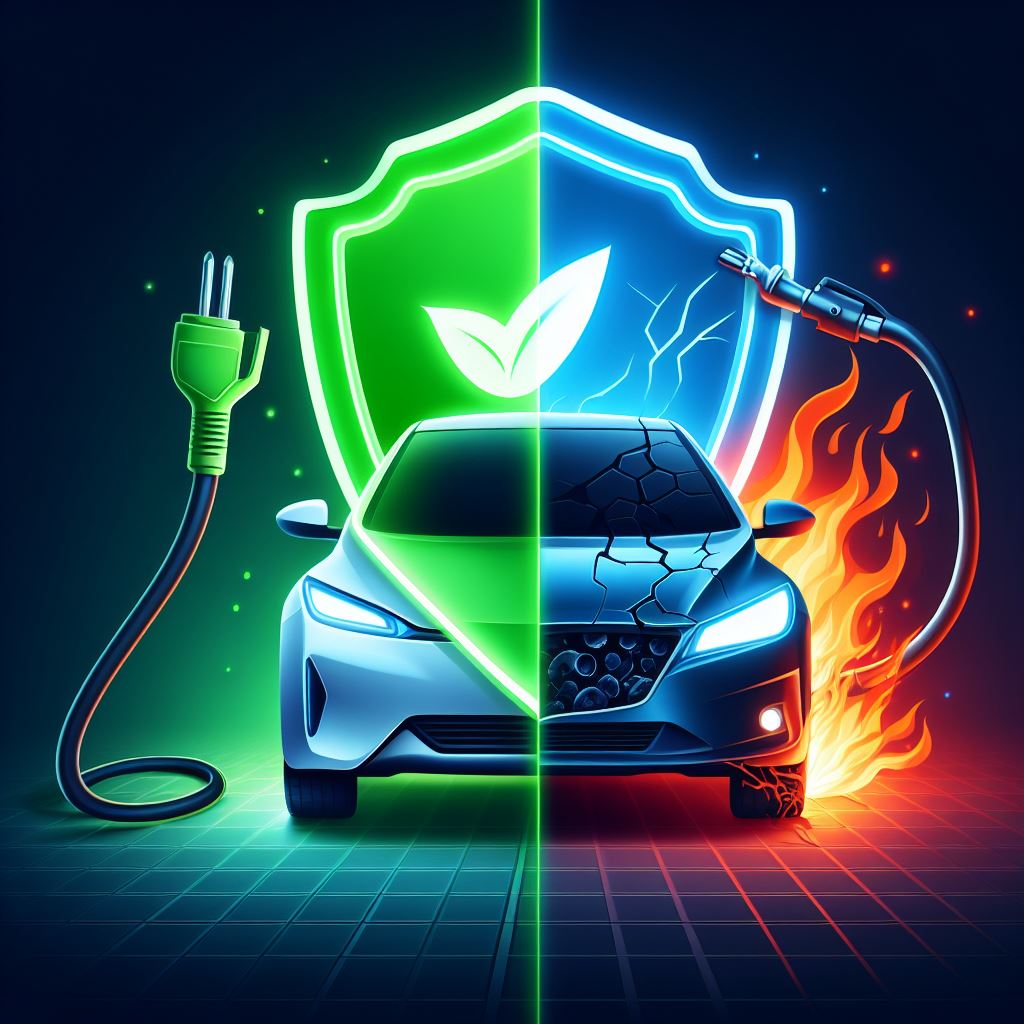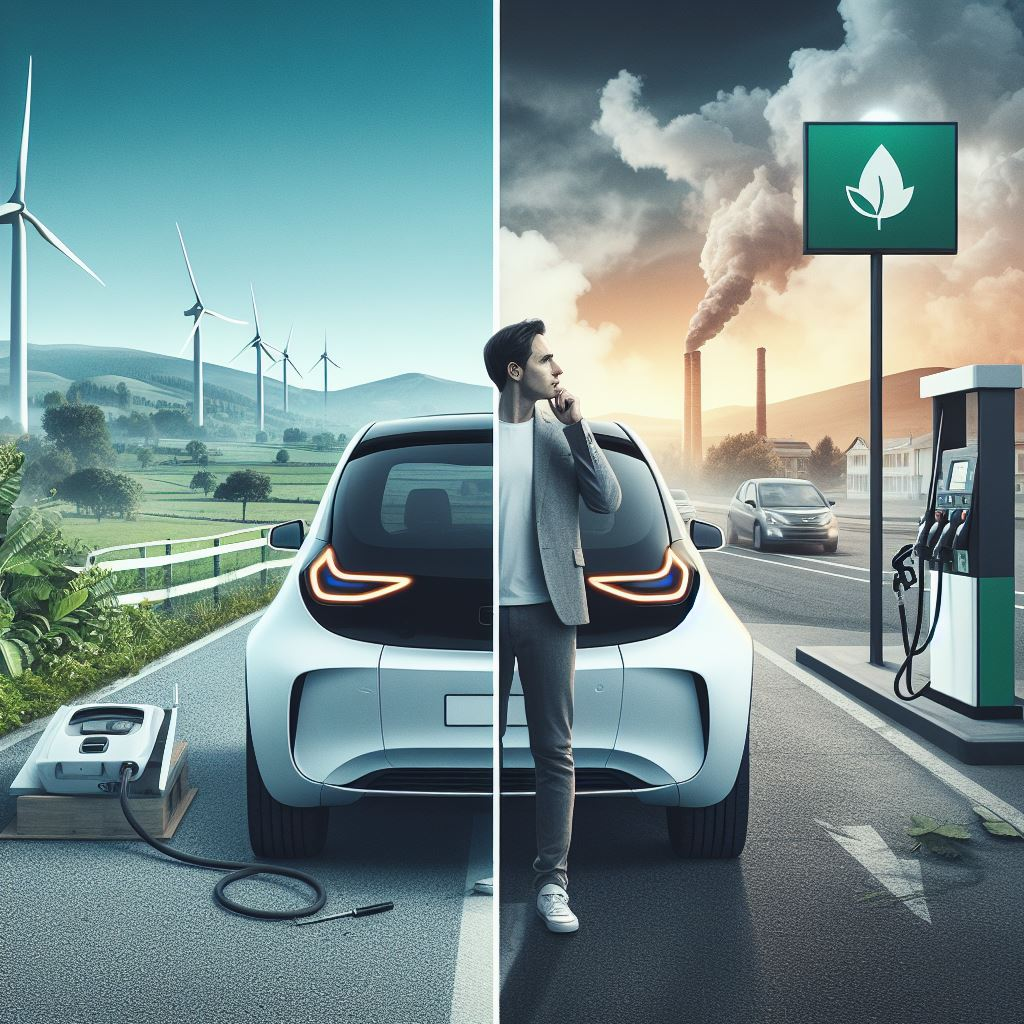
Table of Contents
Introduction
In recent years, the automotive industry has witnessed a remarkable shift towards sustainable and eco-friendly transportation solutions. Electric cars have emerged as the frontrunners in this green revolution, not only for their environmental benefits but also for their potential impact on safety. In this comprehensive exploration, we delve into the question that many are asking: Are electric cars safer than their traditional counterparts?
Are electric cars safer?
EVs are quite a bit safer than gas-powered cars for the following reasons. The lack of an engine provides more space for “crumple zones”, absorbing more of the energy in a collision to avoid harm to the driver.
The question of what constitutes a “safer” vehicle—gas or electric—remains open to interpretation. In addition to going through the same extensive crash testing, they usually have a lower center of gravity for rollover stability and don’t contain flammable gasoline, which may be advantageous. Lithium-ion battery fires are statistically less common than gas fires, but they still carry some risk.

Are electric cars safer than gas-powered cars?
Yes, because of their construction and design features, electric cars are generally thought to be safer than gas-powered cars.
Electric vehicles (EVs) are safer than gas-powered vehicles in a number of ways. According to the National Highway Traffic Safety Administration (NHTSA), there is less chance of injury in collisions involving electric vehicles (EVs) than in collisions with gasoline and diesel engines1. Their low maintenance needs, superior torque vectoring, high crash test safety ratings, and lack of an engine and flammable liquids are all credited for this.
Are electric cars safer than petrol cars?
Yes, electric cars are generally considered safer than petrol cars.
In general, a variety of factors, such as the particular model, the driving environment, and individual crash scenarios, affect how safe both electric and gasoline-powered cars are. It’s critical to keep up with the most recent safety advancements in both kinds of cars and select a model that best fits your requirements and driving style.
Is it safe to use an electric vehicle?
Yes, electric vehicles (EVs) are considered safe to use. Due to their unique design and construction, they frequently offer safety benefits over conventional vehicles and are subject to the same strict safety regulations1. But just like with any car, maintaining it properly and following safety regulations are crucial to guaranteeing safety.³.
Do cheap Chinese electric cars have any safety issues?
Depending on the manufacturer and model, electric cars, including those imported from China, may or may not be safe. Some people are worried about the security risks and safety procedures related to cheaper Chinese electric vehicles.³². Before making a purchase, buyers should investigate and weigh the safety features and ratings of any vehicle.

Is it a good idea to buy an electric car?
Purchasing an electric vehicle may be wise for a number of reasons. Here are a few advantages:
- Low Maintenance Costs: Compared to cars with internal combustion engines, electric vehicles (EVs) have fewer moving parts, which may lead to lower maintenance costs.
- Silent Operation: EVs run more silently, making for a more pleasant ride.
- Low Running Costs: Compared to gasoline-powered vehicles, an electric vehicle’s cost per kilometer can be much lower.
- No Fuel Price Concerns: When driving an electric vehicle, you don’t have to worry about fluctuating fuel prices.
- Environmental Benefits: EVs produce zero emissions at the point of use, which can help reduce your carbon footprint.
- Convenient Charging: EVs can be charged at home, eliminating the need to visit fuel stations.
- Energy Independence: You can reduce your reliance on fossil fuels by using electricity, which can be produced from renewable sources.
These benefits, together with government incentives and an expanding network of charging stations, make electric vehicles (EVs) a more sensible and alluring option for a large number of consumers1. Before choosing, it’s crucial to take into account your unique requirements and circumstances, including your driving style and accessibility to charging.
Is an electric vehicle (EV) a scam?
No, electric vehicles (EVs) are not a scam. These are respectable automobiles that provide a substitute for conventional gasoline and diesel vehicles. EVs contribute to the global effort to fight climate change by lowering carbon emissions. The automotive industry is working toward more sustainable and ethical practices, even though there are discussions about the environmental impact of battery production and ethical concerns regarding the sourcing of materials1. It’s crucial to do your homework and select automobiles from reliable producers who are open about how they make their products.
Are electric cars fire risks in garages?
When compared to vehicles with internal combustion engines, electric vehicles (EVs) are generally regarded as safe and have a lower fire incidence. They do not, however, completely eliminate the risk of fire, just like any other car. To reduce any possible risks, proper handling and maintenance are essential. It’s also crucial to adhere to the manufacturer’s instructions, particularly with regard to charging procedures.
Conclusion: Are electric cars safer?
In conclusion, the question “Are electric cars safer?” can be answered with a resounding affirmative. The innovative design, advanced safety features, and environmental considerations make electric vehicles a compelling choice for safety-conscious consumers. As the automotive industry continues to evolve, embracing electric cars is not just a step towards sustainability but a leap towards a safer and more secure future on the roads are electric cars safer.
FAQs: Are electric cars safer?

Are electric cars safer than gas-powered cars in the USA?
Overall, studies suggest electric vehicles (EVs) are as safe or even safer than gas cars in the US. They undergo the same rigorous safety testing, have fewer flammable components, and often boast lower rollover risk.
What about battery fires? Are they a major concern for electric cars?
While lithium-ion batteries can catch fire when damaged, the risk is significantly lower than gasoline fires. EVs have extensive safety features to prevent short circuits and isolate batteries in case of accidents.
How do electric cars perform in cold weather? Are they less safe in winter?
Range may decrease in cold weather, but safety features still function effectively. Some EVs have pre-heating options to mitigate range loss. Winter tires are recommended for all vehicles, regardless of power source.
What happens if an electric car gets submerged in water? Is there an electrocution risk?
Modern EVs have advanced safety systems that automatically shut down high-voltage components in case of water immersion. The risk of electrocution is extremely low.
How are electric cars tested for safety in the USA?
All light-duty vehicles, including EVs, must meet the Federal Motor Vehicle Safety Standards (FMVSS) which involve rigorous crash tests and safety feature evaluations. Additionally, battery packs undergo separate testing.
What safety features are standard in most electric cars in the USA?
Features like airbags, crumple zones, electronic stability control, and traction control are common across both EV and gas-powered cars. Many EVs also offer advanced driver-assistance systems (ADAS) like automatic emergency braking.
How do insurance companies view electric cars in terms of safety?
Generally, insurance rates for EVs are comparable to similar gas-powered models with the same safety ratings. Some companies may offer discounts for certain EV models due to lower fire risk.
What are some of the challenges related to electric car safety in the USA?
Educating first responders about handling EV accidents and ensuring widespread availability of charging infrastructure are key considerations.
Where can I find more information about electric car safety in the USA?
The National Highway Traffic Safety Administration (NHTSA) website, the Insurance Institute for Highway Safety (IIHS) website, and individual car manufacturer websites are valuable resources.
I’m still hesitant about electric car safety. What resources can help me learn more and overcome my concerns?
Contact your local EV dealership or attend a test drive event to experience the safety features firsthand. You can also connect with EV owner communities online or attend educational workshops organized by industry associations are electric cars safer.
